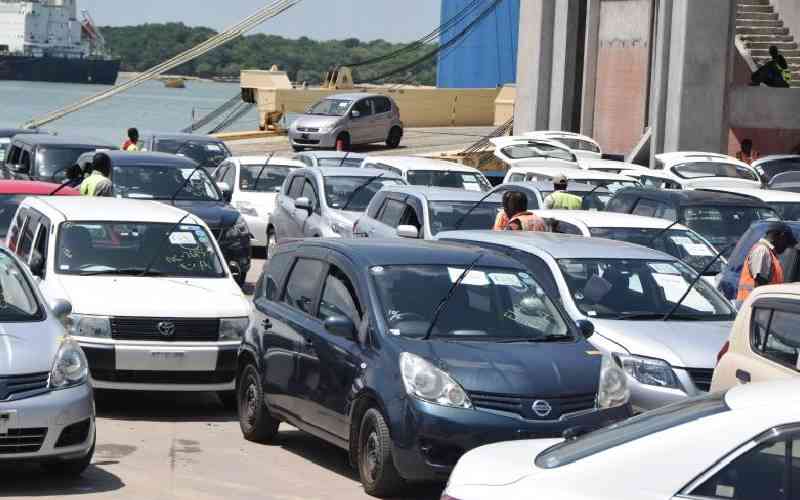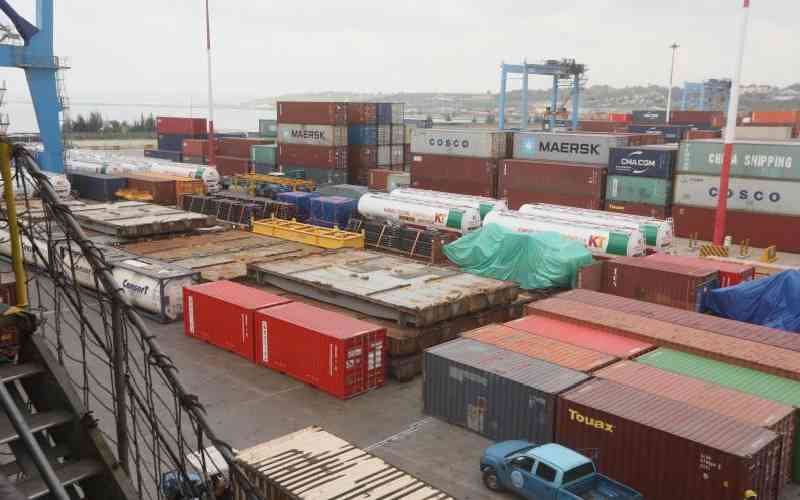
US President Donald Trump once said tariffs are his favourite word. And he meant it, given the number of countries reeling from new or higher tariffs.
America’s two neighbours - Mexico and Canada have not been spared either. We have few neighbours compared with other countries. Kenya has five neighbours, Tanzania has eight. African leaders in “neighbourliness” are Zambia, Sudan and Mozambique with nine.
America’s other neighbour is Russia across the Bering Strait.
Back to tariffs. The latest is on car imports into the US - a whopping 25 per cent. It’s effective April 2. The tariffs are unprecedented in another way: they include car parts, exempting those from Canada and Mexico.
This exemption is easy to explain; lots of US car manufacturers get parts from these two countries. By fixing April 2 as the starting date, Trump gives other countries time to negotiate. Threat can be a good tool for negotiation.
Trump used tariffs during his first term and has continued in his second term. Economists are averse to tariffs. Politicians are not. Using tariffs, Trump has left American allies on their toes, guessing when the next set of tariffs is coming while cobbling their response.
The US is a lucrative market for many countries’ products because of its high level of income and openness. Allies must tread carefully lest they annoy “the giant.”
Why cars now?
Cars fit into the Make America Great Again (MAGA) project. Remember, for most of this century, the US was a car manufacturing superpower, with great industries in the northern part, around Michigan. She is now second after China in the number of cars manufactured. With this in mind, restoring the car industry would make America great again.
The auto industry holds a special place in the American psyche, from Henry Ford’s invention of the assembly plant to the rescue of Chrysler and GM by the government. Cars define the American way of life with their interstate highways.
If you live in the US, you can’t fail to notice the Americans’ love for their cars and the diversity of cars including imports too.
Two, its car sector is a big business, more so when you consider the supply chains. In the US, it’s made more lucrative by car ownership. Predominance of private cars over matatus buses or rail, or boats. The average US household owns about two cars. Only about 8.3 per cent of the households do not own a car. In Kenya?
Three, lots of jobs would be created in the US with tariffs in place. It is expected that car manufacturers would shift their production onshore instead of paying the higher tariffs.
That is Hyundai is getting praises for opening a plant in Georgia, US, to make electric cars. Jobs are good for politics, remember mid-term elections are not far and even in 2028.
Four, tariffs could prolong the life of the internal combustion (IC) engine. With Trump supporting the exploitation of fossil fuels, the traditional car manufacturers would enjoy a boom. It’s another question how companies like Tesla would react to prolonging the life of the internal combustion engine.
Stay informed. Subscribe to our newsletter
Five, the car tariffs could be a reaction to China. It’s the largest car manufacturer in the world and is making headlines on electric cars. Is it possible that Chinese cars could find their way to the US market?
One curious observation is that the rise of electric cars in China has not been good news to the US and European car manufacturers, who invested too much in China. They will slowly lose that lucrative market.
Will the domestic market protected by tariffs save them? It seems charity starts at home. Will the protectionism of the US car market simply postpone the day of reckoning when electric cars will take over the car market? How is Tesla reacting to this tariff’s drama?
Politically, such tariffs are welcome and cheered. Economists could argue that in the short run, jobs would be created. What of the long run?
The price of cars will go up. Importers will pass the tariff to the consumers. That’s the objective of the tariffs: to make imports less attractive. The price will also go up domestically. There is less competition.
By restricting imports, consumers are denied choices. French import wine despite their famous wine industry. Japan imports cars despite making them. Choice is a key plank in economics.
More worrying is that such “protection “of the market could lead to less innovation. Could the rest of the world sprint ahead and leave America and Europe behind in electric cars?
More worrying is that American trading partners could impose their own tariffs on American goods and services.
This would result in less trade among nations and less prosperity for everyone. We could feel the effect of these tariffs even in Kenya. How prepared are we for Trump’s age of tariffs? Remember our African Growth Opportunity Act (Agoa)?







